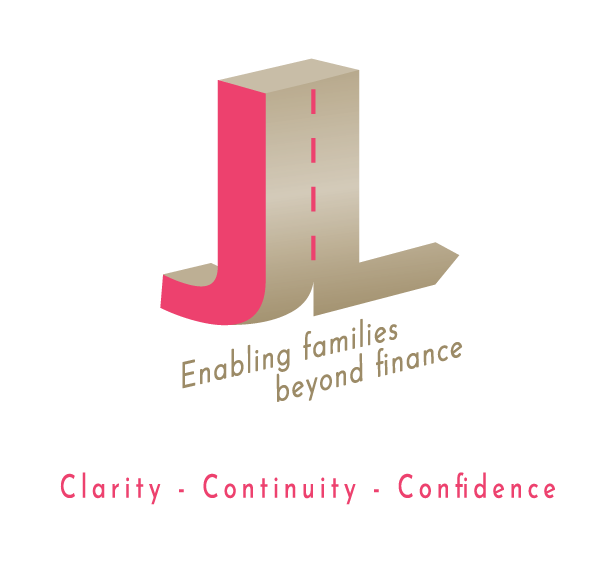As we go through different stages of life, the worry about whether we have enough savings may hover at the back of our minds as expenses and inflation rise. But there are so many common misconceptions about savings and investment planning, it is imperative to bust myths and zoom in on facts to gain clarity. That way, we can make better financial decisions based on our existing or upcoming circumstances.
Debunking 5 Common Misconceptions about Savings & Investment Planning
#1: “I’ve made several huge commitments and I don’t wish to sacrifice my current lifestyle.”
Property, car and monthly fixed expenses or medical bills (if applicable) spent on children, or our aged parents, are big-ticket expenses most of us are tied down with. With them, most people tend to feel they need to sacrifice their current lifestyle should they decide to put aside some funds to save or park a sum in investment opportunities. Whether you are at your current financial status, or at your ideal retirement age, did you know it’s possible to do progressive long-term planning, while planning for the short term (3-5 years)?
Short term financial needs may mean that you need this amount (e.g. to buy a house), yet don’t wish to put the money in the bank to gain interest. With careful planning, it is possible to work towards specific goals across short-term, mid-term and long-term.
Jenelle’s financial tips: Consider short-term planning instruments that are conservative options e.g. money market or bonds to get 3-4% interest. This can be done without compromising your short-term pot of funds yet beat Singapore’s current inflation rate.
#2: “I’ve got a big expense coming up and I don’t know where to start!”
Is your BTO almost ready and you have a sum of spare cash to grow? First, analyze your overall financial planning for a detailed overview of where all your money is at and exactly how much is available to be used on investing or savings. The key is to review and balance both goals to tackle confusion. You don’t need to choose one over the other – planning helps you manage upcoming expenses while safeguarding your future.
Did you know that with effect from 20 August 2024, the Loan-to-Value (LTV) limit for HDB loans will be reduced from 80% to 75%? This is a cooling measure to stabilize the HDB market, bringing the LTV limit for HDB loans in line with loans granted by financial institutions, which remains at 75%. How does this affect those planning to buy a new home or upgrade their homes? New homeowners will need to rely on CPF (OA) or cash savings to contribute to the purchase of the new property.
Jenelle’s financial tips: Before signing up for any investment tools or saving plans, remember to map out your retirement plan or investment plan first. Retirement is a definite milestone for most of us as our income will dwindle or become zero when we stop working. It is necessary to plan for this phase in life.
#3: “My kids have a lot of expenses, and I need to prioritize their needs.”
While parents often feel they must focus on their children’s needs first, they risk neglecting their own financial security. Parents with preschoolers are caught with childcare expenses, despite the childcare and infant care subsidies. Parents with primary school kids have to spend on hiring a helper or student care fees to care for their children after-school. And there’s also the enrichment classes to pay for.
Jenelle’s financial tips: A clear plan ensures you prioritize both your children’s future and your own well-being. Also, if you don’t start now, especially when you’re healthy and earning a salary, then when?
#4: “Investing is a rich man’s game and only for those who earn a high salary.”
There’s a misconception that you need a lot of money to start investing. However, many investment options like mutual funds, Robo-advisors, and even certain shares, allow individuals to start with a small amount. Consistent and modest investments can lead to significant growth over time due to compounding. Do you have the know-how what to do with the money that you are comfortable to set aside to “force save” or invest?
Jenelle’s financial tips: Many often think that they cannot afford to plan for their future. With rising costs, people often feel they can’t manage financial planning. However, small steps, like setting short-term goals (3-5 years), can create clarity and ensure you have enough for both current and future needs.
#5: “I should pick higher risk investments for more rewards, right?”
A common fallacy is that higher risk automatically equals higher returns. While taking on more risk can offer higher potential rewards, it also increases the chances of significant losses. A smart investment strategy balances risk with your financial goals, timeline, and risk tolerance. It’s common to hear stories of people burning their fingers while playing with stocks. On the other hand, you may notice people buying bigger cars and bigger houses as they gain wealth from their investments.
Jenelle’s investment tips: Assess your risk appetite before starting any investment, avoid following others blindly and don’t let greed cloud over logical thinking.
In conclusion, understanding these common misconceptions is crucial for building an effective savings and investment plan that aligns with your financial goals and risk tolerance. When we are at the pre-retiree phase, we could be thinking about balancing retirement planning with our current financial commitments. By then, we should be working towards having a comfortable lifestyle and enough funds for our daily and potential future medical needs.
Whether you’re a business owner or self-employed, the struggle to balance business growth and personal retirement planning is common. Do seek guidance on how to prioritize retirement planning alongside major business investments. More often than not, uncertain cash flow and managing business operations leaves little time to focus on long-term financial security. In the unforeseen aspect, the lack of a safety net in case of business failure, eventually affects both personal and business finances.
Planning your finances doesn’t have to mean sacrificing your lifestyle or taking unnecessary risks. By clearing up common savings and investments misconceptions, you can make smarter decisions that align with both your current and future needs. Whether you’re managing big expenses, preparing for retirement, or looking to invest, having the right strategy can provide the confidence you need.
Most people need a little reminder—without clarity or knowing where to start, it’s easy to prioritize immediate wants or children’s needs over your own financial goals. You may think you can’t afford forced savings or investing, but I’m here to tell you that it’s all possible with the right guidance.
At Journey Beyond Finance, we create personalized plans that balance short-term and long-term goals, empowering you step-by-step. Feel free to reach out and let’s work together to bring clarity and control towards your financial confidence.





